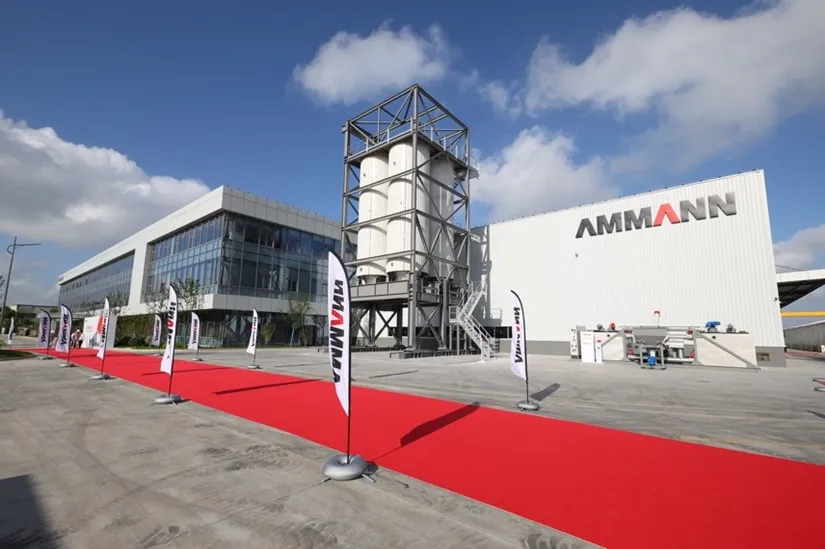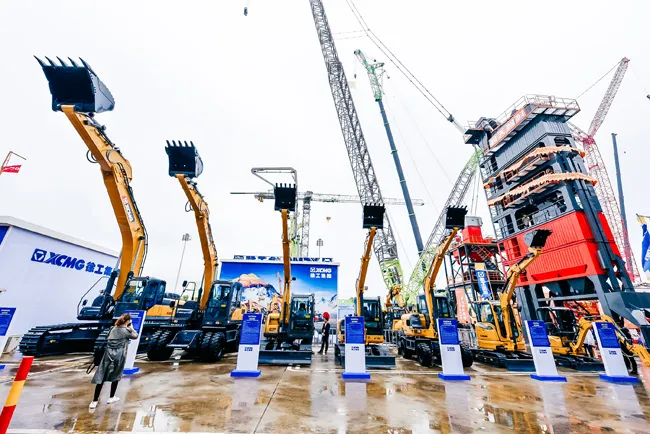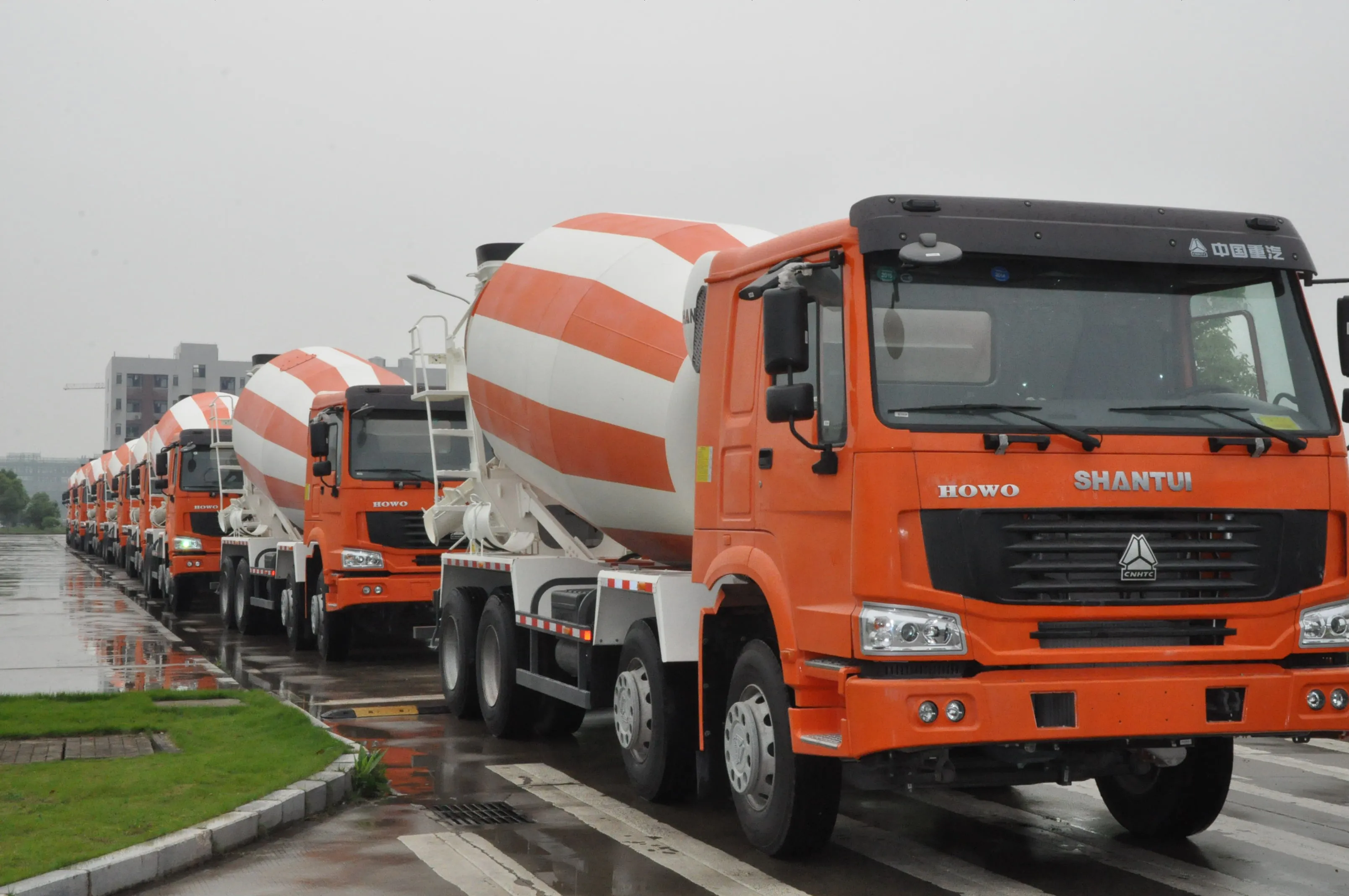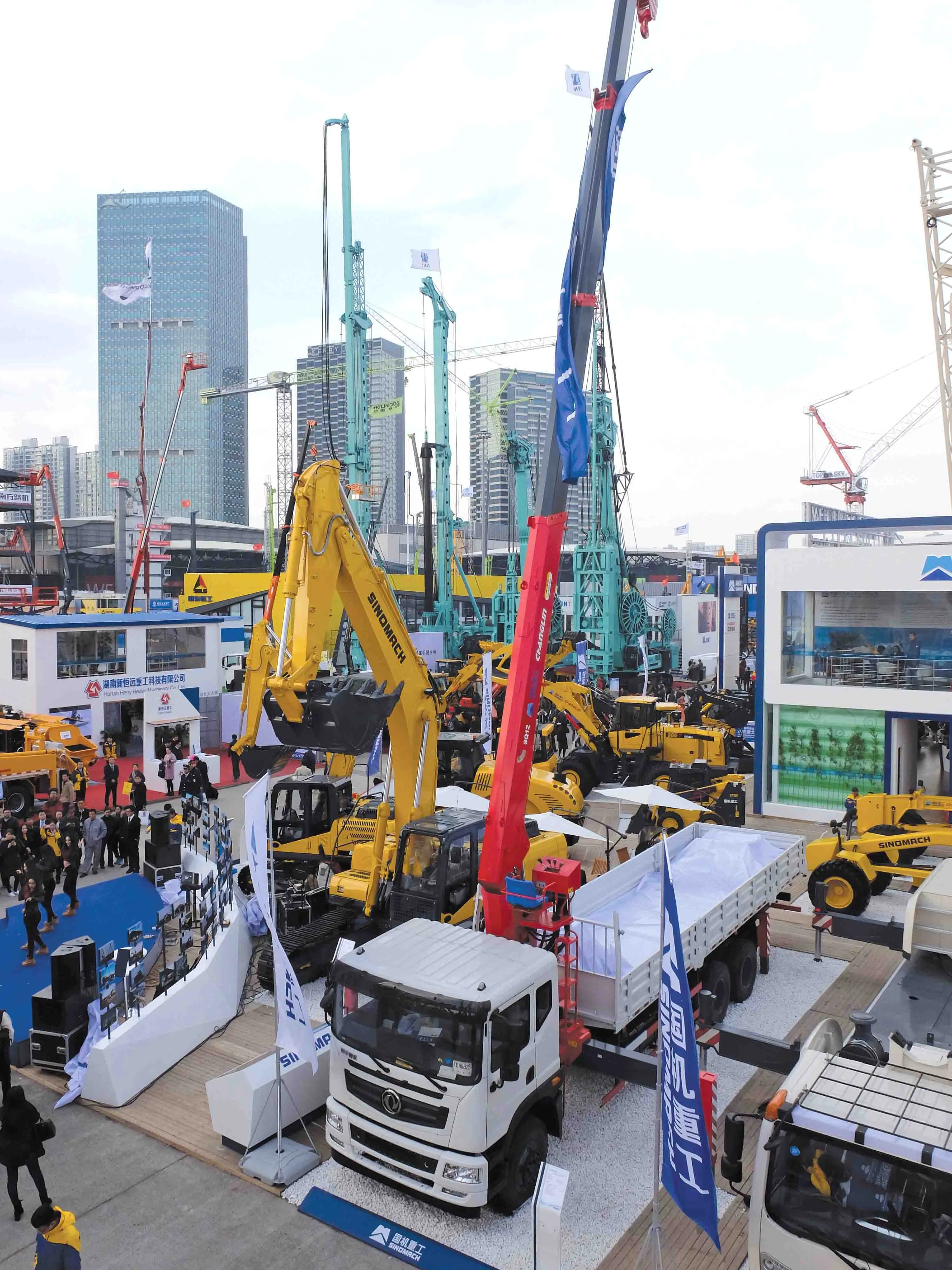
An opening ceremony has been held for Ammann’s latest Asian asphalt plant manufacturing facility, this time a 50,000m² facility in the Chinese city of Zhangjiagang.
The new factory is a major win for sustainability in China, noted Hans-Christian Schneider, chief executive of Ammann Group, during the ceremony.
The 50,000m² plant, which includes 5,000m² dedicated to administration, has the capacity to produce 80-100 asphalt-mixing plants annually. Additionally, the factory will produce spare parts for the region.
Zhangjiagang is a port city which has as metropolitan population of almost four million. It is located on the Yangtze River where the river’s delta area is a key transport hub for China. Ammann says that this should reduce shipping costs, improve sustainability by shortening travel distances for importing raw materials and exporting finished plants and also quicken delivery times to strategic markets throughout China and the Asia-Pacific region.
The factory’s asphalt plants will adhere to tight Swiss sustainability standards, according to the company. This includes Ammann’s global Green Plant initiative which promotes sustainable technologies, innovative solutions and environmentally friendly asphalt-mixing practices, explained said Zhang Liguang, general manager of Ammann China. “The design of the new [manufacturing] plant adheres to the Swiss concept of environmental respect that includes reducing energy consumption, plant emissions and its impact on the environment.”
Ammann entered the Chinese market in 1997 and opened a Beijing office in 2000. The company’s Shanghai factory began manufacturing asphalt-mixing plants in 2005 and has built 500 plants since opening. It will continue to operate as a manufacturing facility.
"The opening of the new factory... continues the firm investments made by Ammann in the Chinese market for many years," said Schneider.









